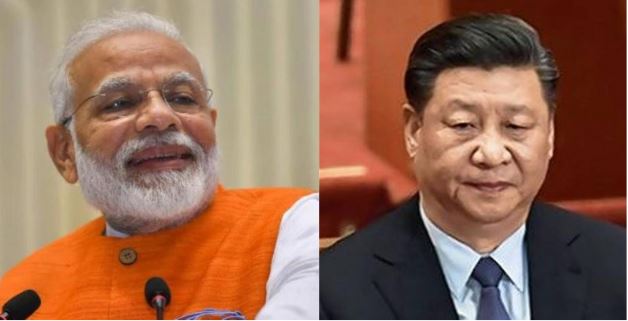India, under PM Narendra Modi, has grown in stature in the Indian Ocean region (IOR) and the Indo-Pacific region. While the previous regimes remained timid on assuming a big superpower role in the region, PM Modi hasn’t shied away from taking the odd risks to establish his might over the geo-strategically important waters. However, China, miffed by the slew of carefully engineered diplomatic victories by India has now thrown its PR machinery into an overdrive to churn lengthy editorials to play down New Delhi’s role in the region which continues to push China to the fringes.
CCP’s propaganda mouthpiece Global Times recently published an editorial where the publication claimed that the US signing a defence framework agreement with the Maldives in the South Asia region could impede New Delhi and Washington from getting strategically intimate.
“India’s indulgence in the US manoeuvre in the Indian Ocean means that India will eventually be pulled into a rivalry with the US in the region. As India views the Indian Ocean as its core interest, this will impede New Delhi and Washington from getting strategically intimate.” read the editorial.
Little did Global Times knew that the US was able to pass the military pact only after receiving blessings from New Delhi. A similar status of forces agreement was floated in 2013, but because of Indian objection, it could not see the light of the day. However, the passing of the agreement in 2020 gave away two things: one, even after China’s repeated attempts to compromise Indian influence in the Indian Ocean Region, New Delhi still maintains its unquestioned sway over it. And two, in the last seven years, Indian and American strategic interests converged a great deal as India seems to have changed its mind.
India and America have become extremely close under PM Modi’s tenure and if China had any aspersions over this undeniable truth then the recent signing of the Indo-US Basic Exchange and Cooperation Agreement (BECA) at the 3rd annual US-India 2+2 ministerial dialogue, ought to change its mind.
Read more: China melts like cheap wax after India and US sign the historic BECA military pact
Therefore, Beijing’s dubious claims that the USA is trying to strengthen its power in the region whilst undermining India is farcical, to say the least. The Maldives and several other South Asian countries are India’s backyard and New Delhi pulls the strings behind what happens. Reported by TFI, India had singlehandedly pulled out the Maldives from the Chinese debt trap and the little island country is now strongly standing with India
Appreciate your warm sentiments, President @ibusolih! As close friends and neighbours, India and Maldives will continue to support each other in our fight against the health and economic impact of COVID-19. https://t.co/esNRBWJxZg
— Narendra Modi (@narendramodi) September 21, 2020
Read more: How India saw a debt-ridden Maldives and liberated it from the clutches of the evil CCP
In one of the other editorials, Global Times had tried to use a similar tactic of driving a wedge between India and Australia to counter the growing influence of the two countries in the Indo-Pacific region.
“As the two countries ascend in the Indian Ocean, India exhibits some kind of discomfort with Australia’s hegemonic ambition in the region. As both seek a dominant role, they may encounter clashes of interest in the Indian Ocean in the long run.” read another mind-numbing article.
If India was indeed feeling discomforted with Australia’s so-called ‘hegemonic ambitions’ in the region then it would have never invited it for the Malabar exercise, scheduled to be held later this month.
China had been left seething through its teeth at the prospect of the informal alliance of QUAD turning into a full-blown military alliance. The alliance, if and when achieves its full military status could spell doom for China’s ambition in the Indo-Pacific as well as the South-China Sea.
China’s fear of losing influence in the region can also be gauged from the fact that Russia had decided to join India for a Naval exercise near the Strait of Malacca—Beijing’s Achilles heel, even after New Delhi had refused to participate in the Kavkaz-2020.
China was infuriated with the developments and rightly so, as the Strait of Malacca is the chokehold point where India has been steadily applying pressure. 80 per cent of China’s oil supplies pass through the South China Sea via the Strait of Malacca, and growing Indian presence in its very close proximity can easily hamper China’s hydrocarbons supply from the Middle East bringing the Middle Kingdom to its knees.
The paper dragon is angry that India is building its hegemony in the region and unlike China, India doesn’t encroach upon any country and its sovereignty by claiming it as its own territory. Nations like Maldives and Australia understand this fact and therefore have rightfully pledged their fidelities to India.
Xi Jinping and his lackeys at Global Times might try all their best to manufacture some tension between the new world order but the truth is—China’s dreams of creating a neo-colonial world are all but over and no PR exercise could get its ambitions back on track.








